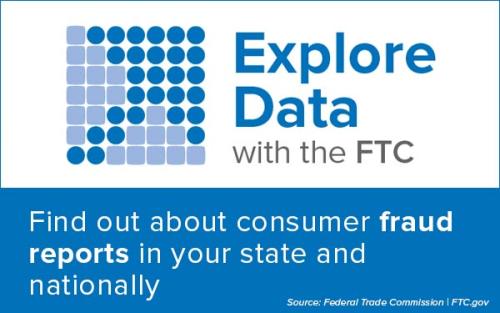Federal Trade Commission staff sent letters to operators of websites that sell Employer Identification Number (EIN) filing and delivery services warning that some of their practices may violate the FTC Act and the Impersonation Rule, which prohibit posing as or misrepresenting affiliation with a government agency. According to the letters, these services charge consumers up to $300 per EIN even though consumers can obtain EINs for free directly from the Internal Revenue Service’s (IRS) website.

“Impersonating the government is unlawful, period,” said Chris Mufarrige, Director of the Bureau of Consumer Protection. “The FTC is warning businesses that sell services the government provides to review their websites and advertisements for symbols and words that mislead consumers.”
EINs are a type of corporate identifier similar to a Social Security Number. Consumers need EINs for a variety of reasons, including opening a business; opening estates upon the death of a loved one or family member; opening a non-profit organization; and hiring a household employee, such a nanny.
According to consumer complaints, some of the practices that EIN filing and delivery services use to imply an affiliation with the IRS include:
- using seals, logos, imagery, layouts, formatting, colors, and fonts similar to the IRS on their websites and in ads that lead to their websites;
- using the acronym “IRS” in their domain names;
- prominently displaying the terms “IRS” or “EIN Assistant” (the name the IRS uses for its free EIN application tool); and
- failing to clearly and conspicuously disclose that their websites are not the IRS’s site nor a government website.
Consumers also say that the EIN filing and delivery services websites do not adequately disclose that the several hundred dollars they charge are entirely service fees because the IRS provides EINs for free.
The letters note that violations of the FTC Act and the Impersonation Rule may result in legal action. In addition, companies or individuals violating the Impersonation Rule can face civil penalties of up to $53,088 per violation and may be required to provide refunds to defrauded consumers.
Finally, the letters state that while the Commission is not suggesting recipients have broken the law, they should conduct a comprehensive review of their marketing and advertising practices – including paid or other online ads, as well as representations made on their websites, social media, or in other promotional materials – to ensure they are complying with the law.
Over the past two years, the FTC has brought law enforcement actions to protect consumers from similar deceptive conduct, including FTC v. Superior Servicing LLC; FTC v. Panda Benefit Services, LLC; FTC v. DOTAuthority.com, Inc.; and FTC v. Forms Direct, Inc.
The Federal Trade Commission works to promote competition and protect and educate consumers. The FTC will never demand money, make threats, tell you to transfer money, or promise you a prize. Learn more about consumer topics at consumer.ftc.gov, or report fraud, scams, and bad business practices at ReportFraud.ftc.gov. Follow the FTC on social media, read consumer alerts and the business blog, and sign up to get the latest FTC news and alerts.
